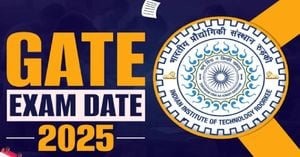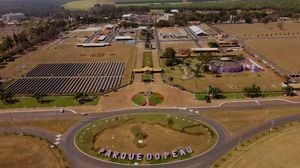Political turbulence is once again sweeping Thailand as officials grapple with serious allegations surrounding the process by which members of the Senate were selected. Senior government officials are currently investigating claims of irregularities related to the recent selection of senators, known locally as the "hualerk" case, as concerns about transparency and integrity within the political framework intensify.
On February 25, 2023, Deputy Prime Minister and Minister of Defence Phumitham Wechayachai announced after a lengthy meeting of the Special Case Committee (GKP) at the Ministry of Justice, lasting over three hours, the intention to review the cases linked to the selection of senators. He indicated the process had been under scrutiny since 2021.
According to Phumitham, the committee has been grappling with various opinions on the case's importance, particularly owing to its ties with serious criminal allegations including money laundering and organized crime. The allegations could carry considerable weight, as they deal with the fundamental institutions of the country, prompting calls for transparency and expediency. "This is not about political vendetta; it’s about the integrity of our processes," he asserted.
Despite some prominent figures within the Senate, who have publicly remarked on the committee's inquiries as potentially politically motivated, Phumitham clarified, "It's about clarifying legitimacy—nothing more. We are not here to target anyone. It's about whom the law applies to and how we proceed from here.”
Concern over the alleged impropriety has mounted among the populace, underlined by the public perception of potential collusion between senators during the election process, dubbed as “blue senators” by critics, due to their perceived loyalty to certain political factions.
The GKP is set to meet again on March 6, 2023, during which it is expected to hear the Committee of Election Commissioners (EC) to clarify their standpoint on the validity of the claims surrounding the election processes. Phumitham announced discussions would revolve around whether the EC would appropriately pursue these allegations or defer to the investigative powers of the Department of Special Investigation (DSI).
The atmosphere is charged with anxiety as critics anticipate more revelations could surface. During the GKP's weekly meeting, questions arose about the direction the investigation would take, prompting some senators to express their discontent. Senator Savarn Surasak, from the "blue group," vocalized concerns about the integrity and questioning of their operational legitimacy, asking, "What will be the next steps if the circumstances turn unfavorable for us?"
This highlights the underlying tension between the legislative branch's authority and the alleged interference by law enforcement agencies investigating the selection process.
Public sentiment has shifted as aspects of the senator's selection procedure, put under the microscope, reveal serious systematic dysfunctions. Information disclosed by the grassroots organization iLaw indicates irregularities leading to the conclusion of collusion among senators. Observations included anomalous vote patterns and clustering of supportive votes, leading to accusations of predetermined outcomes influencing the election process.
Senators have also expressed concerns over the potential backlash, with suggestions surfacing of possible legal ramifications should the findings disclose correlations between bribes or advantages exchanged among candidates, as outlined under section 77 of the Act governing senator elections established under the 2018 constitution.
Meanwhile, Tavee Sodsong, the Minister of Justice, attempted to clarify the role of the EC and DSI, emphasizing the collaboration necessary for thorough investigation. “Should the EC desire our assistance, we will provide it, as we are here to cooperate, not to meddle,” he explained, insisting on legal impartiality and transparency throughout the process.
With the investigation gaining momentum, the stakes have risen considerably. A consensus emphasizes the need for responsible governance and ethical conduct among government officials, pressing for not only law offering but also the spirit of the law to be upheld during the following proceedings.
The path forward remains uncertain, and fundamental questions linger: What consequences await those implicated? How will oversight structures adapt if wrongdoing is proven? Anticipation surges as political observers brace for March 6, when significant decisions may emerge, influencing Thailand’s immediate political fate.
This moment reminds citizens of the pivotal role they play as guardians of democracy, and as allegations ramp up tension and scrutiny across Thailand, many are left pondering the robustness of their institutions.



